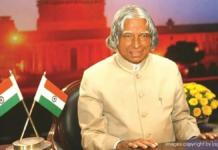New Year’s Day, celebrated on January 1st, marks the beginning of a new year. The day is often a time for family gatherings, meals, and celebrations. Many people make New Year’s resolutions, promising to improve themselves or their lives in some way. Traditional New Year’s Day foods vary by culture, but common dishes include black-eyed peas, cabbage, and champagne. Cities and towns also host parades, festivals, and other events to celebrate the start of a new year.
The celebration of New Year’s Day is filled with symbolism. It represents a fresh start, a chance to begin anew and leave past mistakes behind. The day is also filled with hope and optimism for the future, as people look forward to the possibilities and opportunities that the new year will bring.
History and Importance of New Year’s Day
The celebration of the New Year dates back thousands of years and has been observed by various cultures worldwide. The earliest recorded New Year celebrations occurred in ancient Mesopotamia around 2000 BCE, where the new year was marked during the vernal equinox (mid-March). Later, in ancient Rome, the calendar was reformed by Julius Caesar in 46 BCE, establishing January 1 as the first day of the year. January was named after Janus, the Roman god of beginnings, endings, and transitions, symbolizing reflection on the past and planning for the future.Cultural Significance
New Year’s Day is a time for celebration and holds deep cultural significance. It represents a fresh start and is often associated with setting resolutions for self-improvement, leaving behind the past, and looking forward with hope. Many cultures incorporate unique traditions and rituals to mark the occasion, such as feasting, and fireworks, and symbolic practices like eating specific foods for luck and prosperity.
Happy New Year 2025: History, Significance, And Why We Celebrate New Year’s Day
New Year 2025: New Year’s Day is a time for celebration and holds deep cultural significance.
New Year’s Day, celebrated on January 1st, marks the beginning of a new year. The day is often a time for family gatherings, meals, and celebrations. Many people make New Year’s resolutions, promising to improve themselves or their lives in some way. Traditional New Year’s Day foods vary by culture, but common dishes include black-eyed peas, cabbage, and champagne. Cities and towns also host parades, festivals, and other events to celebrate the start of a new year.
The celebration of New Year’s Day is filled with symbolism. It represents a fresh start, a chance to begin anew and leave past mistakes behind. The day is also filled with hope and optimism for the future, as people look forward to the possibilities and opportunities that the new year will bring.
History and Importance of New Year’s Day
The celebration of the New Year dates back thousands of years and has been observed by various cultures worldwide. The earliest recorded New Year celebrations occurred in ancient Mesopotamia around 2000 BCE, where the new year was marked during the vernal equinox (mid-March). Later, in ancient Rome, the calendar was reformed by Julius Caesar in 46 BCE, establishing January 1 as the first day of the year. January was named after Janus, the Roman god of beginnings, endings, and transitions, symbolizing reflection on the past and planning for the future.
Importance Today
New Year’s celebrations foster a sense of renewal and unity, bringing people together across cultures and borders. The day is an opportunity for reflection, gratitude, and hope for the future. It also serves as a reminder of the cyclical nature of life and time, encouraging individuals and societies to strive for progress and harmony.
New Year’s Day continues to be a universal festival of joy and optimism, transcending its historical roots to remain relevant and meaningful in modern times.




















